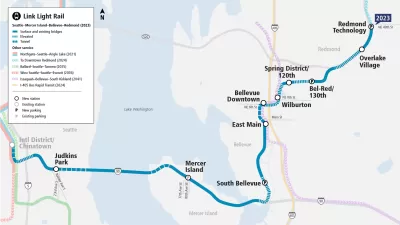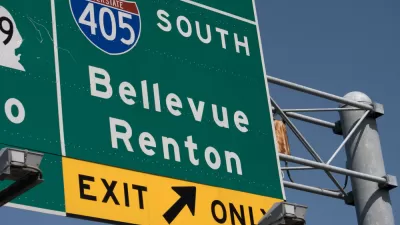Big-name technology companies with retail stores, like Apple, Microsoft, and Tesla, have enabled many Class A malls to not just stay in business, but thrive. Record sales per square foot are flowing.
Forecasts of the death of the enclosed mall are clearly premature. Of course, many will die, but the dire forecast is clearly inappropriate for many of the so-called Class A malls located in affluent, denser locations in major metro markets.
Readers are encouraged to watch the four-minute, Wall Street Journal Moneybeat video, "Can the Apple Store Save Your Local Shopping Mall?" Wall Street Journal reporter Robbie Whelan, who wrote the story from Bellevue, Washington, home of "Bellevue Square, a shopping center in this affluent Seattle suburb," is interviewed and responds to excellent questions by The Journal's MoneyBeat interviewer about how new technology companies "are now the saviour of the mall," as implausible as that may sound.
"A lot of people talk about how malls are under threat from e-commerce and how buying things online has supplanted buying things at the mall. The irony of ironies is that we have three of the biggest, most profitable (mall) tenants are from the tech world," responds Whelan to the first question.
The Bellevue Square's Tesla Motors Inc. store "produced sales of $5,500 per square foot last January, more than five times the mall’s average and at a pace the mall’s owners say is likely a U.S. record for any retailer," writes Whelan in his article.
However, as shown in a graphic of the mall, the Tesla store is a mere 1,800 square feet. The Apple and Microsoft stores are considerably larger, though under 13,000 square feet, and the Leica (camera) store is smaller than Tesla.
"High-tech tenants are a recent phenomenon," writes Whelan. "Over the past decade, the number of Apple stores in North American malls has grown to 219 from just a handful. Microsoft has opened 70 store locations in malls since 2009 and Tesla 25 since 2008, according to REIT research firm Green Street Advisors."
In addition to high sales per square foot than traditional mall anchors, the high tech stores differ from them in another way that makes them prime mall tenants. Unlike traditional anchor tenants, which "typically own their spaces outright," these stores "under typical lease agreements are required to share a percentage of their sales with their landlord," writes Whelan.
"The average vacancy rate for Class A malls — which command top rents — has fallen below where it was in early 2008 at the recession's start, says Ryan Severino, senior economist at real estate research firm Reis (REIS)," according to Investor's Business Daily on July 25, 2013. "The rate for Class B and C malls, which serve the middle- to lower-income crowd, remains 40% above its own early-recession level, he says."
FULL STORY: High-end malls get boost from high-tech stores

Alabama: Trump Terminates Settlements for Black Communities Harmed By Raw Sewage
Trump deemed the landmark civil rights agreement “illegal DEI and environmental justice policy.”

Study: Maui’s Plan to Convert Vacation Rentals to Long-Term Housing Could Cause Nearly $1 Billion Economic Loss
The plan would reduce visitor accommodation by 25% resulting in 1,900 jobs lost.

Planetizen Federal Action Tracker
A weekly monitor of how Trump’s orders and actions are impacting planners and planning in America.

Waymo Gets Permission to Map SF’s Market Street
If allowed to operate on the traffic-restricted street, Waymo’s autonomous taxis would have a leg up over ride-hailing competitors — and counter the city’s efforts to grow bike and pedestrian on the thoroughfare.

Parklet Symposium Highlights the Success of Shared Spaces
Parklets got a boost during the Covid-19 pandemic, when the concept was translated to outdoor dining programs that offered restaurants a lifeline during the shutdown.

Federal Homelessness Agency Places Entire Staff on Leave
The U.S. Interagency Council on Homelessness is the only federal agency dedicated to preventing and ending homelessness.
Urban Design for Planners 1: Software Tools
This six-course series explores essential urban design concepts using open source software and equips planners with the tools they need to participate fully in the urban design process.
Planning for Universal Design
Learn the tools for implementing Universal Design in planning regulations.
Caltrans
Smith Gee Studio
Institute for Housing and Urban Development Studies (IHS)
City of Grandview
Harvard GSD Executive Education
Toledo-Lucas County Plan Commissions
Salt Lake City
NYU Wagner Graduate School of Public Service




























